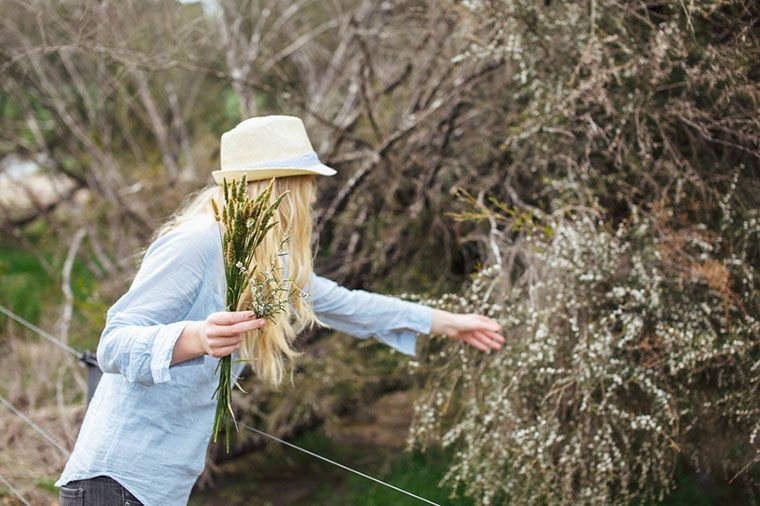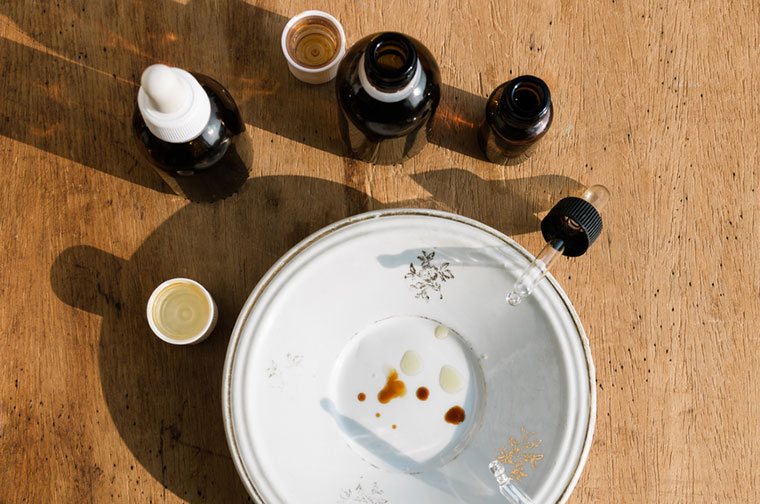What Happens When Supply Can’t Meet Demand in the Natural Beauty World?
Here's the thing about beauty products that are made from ingredients that can be mixed in a lab: Brands don't have to worry too much about where their next batch will come from. In the clean beauty industry, on the other hand, the ingredients literally grow on trees (or vines, or under water). And the Earth's resources, while seemingly abundant, are not going to just last forever.
When you peruse the aisles at a natural beauty boutique—or Sephora's ever-expanding selection of paraben-free products—it's easy to take for granted that your fave serums and balms will always be there. But because of ingredient sourcing issues all natural beauty brands face, this is hardly the case. Think of it in terms of the food world—factors like climate, cost of production, and labor can all affect what goes on your plate. Remember the avocado price surge due to extreme weather in California? (Scary stuff.)
A year ago, Annie Tevelin, founder of the natural beauty brand SkinOwl, experienced a sourcing crisis that could have put her out of business.
"I had no idea that there wouldn't be enough of an ingredient I thought was sustainable and that no one else was using."
Tevelin launched her brand in 2015 after formulating her own serum—featuring the Southeast Asian ingredient mangosteen—to combat her stubborn cystic acne. (It was the only thing she found that worked.) And for the first year, business was booming—so much so that SkinOwl's mangosteen distributor could no longer keep up with the brand's demand.

{{post.sponsorText}}
"I had no idea that there wouldn't be enough of an ingredient I thought was sustainable and that no one else was using," says Tevelin. In order to keep her business afloat, she had to pivot.

The sourcing struggle is real
When faced with her sourcing crisis, Tevelin resisted changing her best-selling formula. "I worked for Lancome long enough to know that I'd come to work on certain days and all of a sudden, moisturizers that people loved were taken from the shelf or reformulated with no explanation," she says. "That was something I was terrified of doing—it's important to me to not leave people high and dry." But without a viable replacement mangosteen supplier, she prepared to discontinue her star product.
Tevelin's dilemma was alarming, but not unique: Countless other natural beauty brands have to deal with similar issues.
"A few years ago, I remember it being nearly impossible to source organic rose hip oil due to an exceptionally difficult crop," notes Jessica Morelli, founder of Palermo Body. In another instance, "One of our suppliers knew they would be discontinuing a particular ingredient we use and reached out personally to offer us the rest of what they had in-house in an effort to give us time to find another trusted source."
"I spent many sleepless nights researching alternatives and reaching out to trustworthy suppliers around the world."
And then there was the global jojoba plant shortage. "It was terrifying to us because jojoba features in many of our products," says Rachel Winard, founder of Soapwalla. "I spent many sleepless nights researching alternatives and reaching out to trustworthy suppliers around the world."
Winard points out that while it was incredibly stressful, the scramble taught her something crucial: "Always have a plan B for every ingredient. And now I make sure to have a list of people I trust and whom I can work with in an emergency," she says.

Natural solutions
In Tevelin's quest to find an answer to her mangosteen problem, she stumbled upon another powerful superfruit: the maqui berry. "Maqui berry is the No. 1 fruit antioxidant in the world, and it's constantly re-harvested and sustainable," she says. And amazingly, Tevelin swears her serum with the new ingredient works even better than the original mangosteen formula.
As more powerhouse retailers (like Target and Sephora) expand their natural beauty selections, it's going to change the way brands create their products across the board. "The big stores are putting out large purchase orders because they're used to dealing with products made out of a lab," says Tevelin. "They're trying to bring in thousands of units—not just a few dozen. It's a concern if you're working with, say, argan oil or shea butter," which have a limited supply.
"Working with nature is one of the most beautiful things about using raw, natural ingredients—and one of the trickiest."
If reformulation or back-up suppliers aren't options, brands may need to let customers know their fave products are temporarily out of stock. "We order samples before placing a large order with a new supplier for a given ingredient to make sure their product meets our standards," says Sarah Villafranco, MD, founder and CEO of the natural skin-care brand Osmia Organics. "If we can’t source an ingredient that lives up to the Osmia name, we’ll take our product out of stock rather than compromise our quality."
"Having to manage supply issues is the nature of working with nature," Dr. Villafranco adds. "Weather changes, soil changes, winds change, bee colonies change, and all those changes add up to differences in the plants and their oils. It’s one of the most beautiful things about using raw, natural ingredients—and one of the trickiest."
As for Tevelin, she's being completely transparent with her customers—while some mangosteen devotees have left upset comments on her social media platforms, most of the responses commend her honesty and diligence in finding something else suitable for acne-prone skin. "It wasn't an easy decision to make," she says. "But I find a lot more freedom in doing things in the light and dealing with the repercussions."
For more clean beauty intel, here's the truth about four common natural beauty myths. And this is what every woman should know about her skin-care routine.
Loading More Posts...